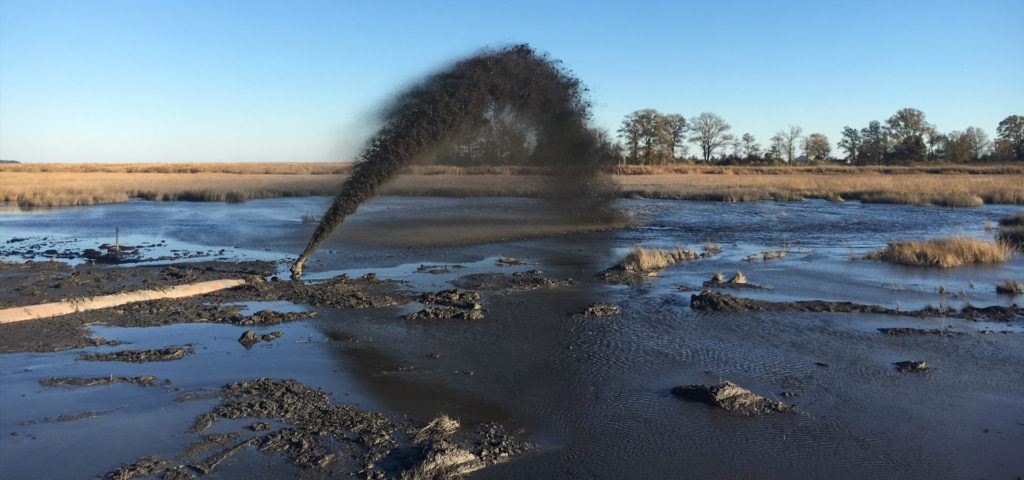Network Updates
ASAP Solidarity Statement
ASAP stands in solidarity with the Black Community and all Communities of Color in the fight against police brutality, racism, and injustice in all forms. Standing in solidarity, as a predominately white organization, means that we make space for Leaders of Color to dictate the actions needed at this time, that we respect the right…
Read MoreASAP’s Response to COVID-19: Adaptive Management
Written by Beth Gibbons, ASAP’s Executive Director In early 2019 a sign appeared on the wall of ASAP’s modest office building. It reads, “We Will Figure It Out”. When it appeared we laughed at how appropriate it felt, given how many times a day our team sat down to think through a new challenge, be…
Read MoreNew ASAP Communications: Targeted, Engaging Content for the Adaptation Field
Our team at ASAP has been working hard to make member publications and the ASAP newsletter more impactful for the adaptation field by curating and disseminating content in a way that is more accessible to readers. In 2013, ASAP began producing a bi-weekly newsletter, a cornerstone of our work. The original newsletter shared everything from…
Read MoreWhat can I do? Personal and household behaviors that can support adaptation
Though it’s finally starting to cool down, this summer was the hottest on record in the Northern Hemisphere. In both July and August, large parts of the United States experienced heat waves that brought temperatures near and above 100 degrees F for days on end. If you live in these areas, you may have gotten notices like this one from DTE…
Read MorePiloting Adaptation & Resilience Programs in the Great Lakes Region
The Great Lakes Integrated Sciences and Assessments (GLISA), a NOAA RISA Team, will support ASAP with two newly funded initiatives for two years. Piloting Adaptation & Resilience Programs in the Great Lakes Region Private sector service providers are entering the adaptation and resilience field at an increased rate. Through integration into the boundary chain model, private sector businesses…
Read MoreRegional Resilience Toolkit: 5 Steps to Build Large Scale Resilience to Natural Disasters
Developed by EPA and FEMA in partnership with the Metropolitan Transportation Commission and Association of Bay Area Governments in California, this toolkit provides a stepwise process for individual communities or coalitions of communities across a region to engage in partnership-building, planning, and other activities to build regional resilience. The goal of the toolkit is to…
Read MoreKiller Heat in the United States
The Union of Concerned Scientists (UCS) has evaluated how climate change will contribute to increasing incidence of dangerous high heat days across the U. S. This includes an analysis of the growing number of high heat days across various regions of the country, described under three climate change scenarios. The report also details the public health consequences of extreme…
Read MorePlaybook 1.0: How Cities Are Paying for Climate Resilience
From the Innovation Network for Communities, this report discusses eight strategies city governments have used to finance climate resilience projects. These strategies were found common to eight different U.S. cities blazing the trail to fund large-scale climate resilience, especially addressing sea level rise and flooding. Other cities can use this information to adopt and build…
Read MoreMiami, Florida Resilient 305 Strategy
This climate resilience plan was created collaboratively by Greater Miami and the Beaches (GM&B) – a unique partnership between Miami-Dade County, the City of Miami, and the City of Miami Beach. The unified adaptation strategy integrates climate change planning and preparedness for the low-lying coastal communities in southeast Florida (which share area code 305). The Resilient305…
Read MoreState of Montana Executive Order 8-2019: Creating the Montana Climate Solutions Council and Joining the State of Montana to the U.S. Climate Alliance
On July 1, 2019, Montana Governor Steve Bullock signed Executive Order 8-2019, establishing the Montana Climate Solutions Council and committing the state to the U. S. Climate Alliance. The Executive Order directs the Council to work with state agencies to incorporate climate adaptation and resilience strategies into state plans and operations, and to put forth recommendations…
Read More

